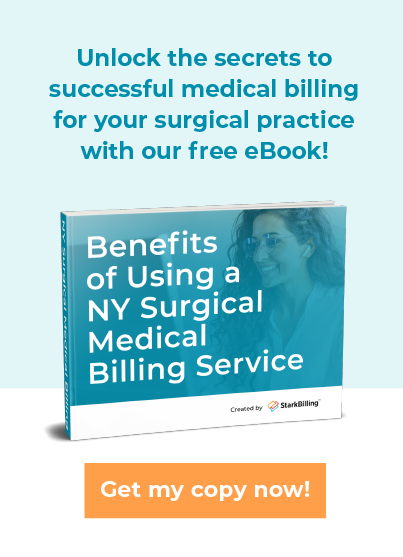For surgical practices, pre-authorizations play a crucial role in ensuring the financial viability and smooth operation of healthcare services. They are pivotal in avoiding claim denials because insurance regulations and requirements are stringent. This blog explores the importance of pre-authorizations, the challenges associated with obtaining them, and strategies to enhance their effectiveness, ultimately guiding surgical practices toward more efficient and profitable operations for surgical practices in New York.
Understanding Pre-authorizations in Surgical Practices
Pre-authorizations, also known as prior authorizations, are approvals obtained from insurance companies before certain medical procedures or services are performed. Their primary purpose is to ensure that the proposed medical services are medically necessary and covered under the patient’s insurance plan. This process helps control healthcare costs and ensures that patients receive appropriate and effective care.
In the context of surgical procedures, prior authorizations are particularly critical. Surgeries often involve significant costs and resources, and securing pre-authorization is a proactive measure to confirm that the insurance company will cover these expenses. Without pre-authorization, surgical practices risk performing procedures that might not be reimbursed, leading to substantial financial losses.
The pre-authorization process involves several steps:
- Submission of request: The healthcare provider submits a detailed request to the insurance company, including patient information, the proposed surgical procedure, and supporting medical documentation.
- Review by insurer: The insurance company reviews the request to determine medical necessity and coverage eligibility.
- Approval or denial: The insurer either approves the request, allowing the procedure to proceed with financial backing, or denies it, requiring further action from the provider.
Importance of Pre-authorizations in NY Surgical Practices
Like every other state in the country, New York follows the federal healthcare regulations and insurance requirements that make pre-authorizations essential. Insurers often require detailed documentation and justifications for surgeries, making the pre-authorization process a critical step in compliance and financial planning.
Pre-authorizations significantly impact claim approval rates. When it is obtained, the likelihood of a claim being approved increases substantially, as the insurer has already reviewed and sanctioned the procedure. This preemptive approval reduces the risk of claim denials, which can disrupt revenue cycles and financial stability.
Securing pre-authorizations offers numerous benefits, including:
- Reduced risk of claim denials: Ensuring that the insurance company has pre-approved the procedure minimizes the chances of denial after the service is provided.
- Improved revenue cycle management: Predictable reimbursement streams contribute to better financial planning and stability.
- Enhanced patient satisfaction: Patients experience fewer delays and uncertainties regarding their surgical procedures and associated costs.
Common Challenges in Obtaining Pre-authorizations
Surgical practices often encounter several challenges in securing pre-authorizations:
- Incomplete documentation: Missing or incomplete information can lead to delays or denials.
- Approval delays: Insurance companies may take considerable time to process requests, delaying necessary surgeries.
- Insurance company requirements: Varied and sometimes unclear requirements from different insurers add complexity to the process.
- Improper coding: The prior approval obtained is specifically for the procedure on the original request. If at the time of surgery, it was discovered that other services are needed, a follow-up request is required within twenty-four hours after the procedure was performed.
These challenges can significantly affect practice operations and revenue. Delays in obtaining approvals can lead to postponed surgeries, impacting patient care and satisfaction. Additionally, denied claims due to lack of pre-authorization can result in financial losses, as the practice may not be reimbursed for services rendered.
Strategies for Effective Pre-authorizations
There are a few strategies for effective pre-authorizations. Implementing a dedicated pre-authorization team or specialist can greatly enhance the efficiency of the process. They will focus solely on managing pre-authorization requests, ensuring thoroughness and accuracy in submissions.
EHR systems can streamline the pre-authorization process by integrating patient records, medical histories, and necessary documentation in a centralized platform. This integration facilitates quick access to information and reduces errors in submissions.
Additionally, developing standardized protocols and checklists for pre-authorization submissions ensures consistency and completeness in the documentation process. These protocols help staff adhere to best practices and reduce the likelihood of missing critical information.
Finally, ensuring thorough and accurate documentation is paramount. Detailed medical records, clear justification for the procedure, and all required forms must be meticulously prepared to support the pre-authorization request.
Technology Solutions for Pre-authorization Management
Various technology tools and software solutions assist in managing pre-authorizations effectively. These automate many aspects of the process, reducing manual workload and minimizing errors.
Automated pre-authorization systems offer several benefits:
- Speed and efficiency: Automation accelerates the submission and review process, leading to faster approvals.
- Reduced administrative burden: Automation handles repetitive tasks, freeing up staff to focus on more complex aspects of patient care and administration.
- Improved accuracy: Technology reduces human error, ensuring that all necessary information is included in the pre-authorization request.
For example, integrated software can automatically populate patient information and medical histories into pre-authorization forms, ensuring consistency and completeness. Additionally, real-time tracking systems can provide updates on the status of pre-authorization requests, enabling practices to manage their schedules more effectively.
Training and Education for Staff
Ongoing training for staff members involved in the pre-authorization process is essential. Continuous education ensures that they remain knowledgeable about current best practices, regulatory requirements, and insurance policies.
Training programs should cover a range of topics, including:
- Documentation standards: All required information is accurately recorded and submitted.
- Insurance requirements: There’s an understanding of the specific requirements of different insurance companies.
- Process improvements: Training on new tools and technologies can streamline the pre-authorization process.
Regular updates and refresher courses help keep staff informed about changes in pre-authorization procedures and regulations. This ongoing education ensures that the team can adapt to new requirements and maintain efficiency.
Monitoring and Improving Pre-authorization Processes
Establishing KPIs for pre-authorization efficiency helps practices monitor their performance and identify areas for improvement. Common KPIs include the average time taken to secure pre-authorizations, the percentage of approved requests, and the rate of denials.
Conducting regular audits and reviews of pre-authorization practices helps identify weaknesses and areas for improvement. They provide valuable insights into the effectiveness of current processes and highlight opportunities for enhancement.
Implementing continuous improvement strategies based on audit findings ensures that pre-authorization processes evolve and improve over time. These might include adopting new technologies, revising protocols, or enhancing staff training programs.
Final Note
Effective pre-authorization processes are essential for avoiding claim denials and ensuring financial stability. By implementing dedicated teams, utilizing advanced technology, and maintaining thorough documentation, surgical practices can enhance their pre-authorization efficiency.
To optimize pre-authorization processes further, consider partnering with a specialized billing service like StarkBilling. Its team’s expertise in managing pre-authorizations can help streamline operations, reduce administrative burdens, and improve revenue cycle management. Embrace these strategies to ensure that your surgical practice operates smoothly and profitably, enabling you to focus on delivering exceptional patient care.
StarkBilling offers expert assistance in enhancing your pre-authorization processes. Its specialized services are designed to support surgical practices in achieving optimal financial and operational success.
Capture more revenue, and expand your New York surgical practice by partnering with a specialized medical billing team that has in-depth knowledge of the coding requirements for your diverse procedures. Schedule a free consultation now.
gd2md-html: xyzzy Wed Aug 14 2024






